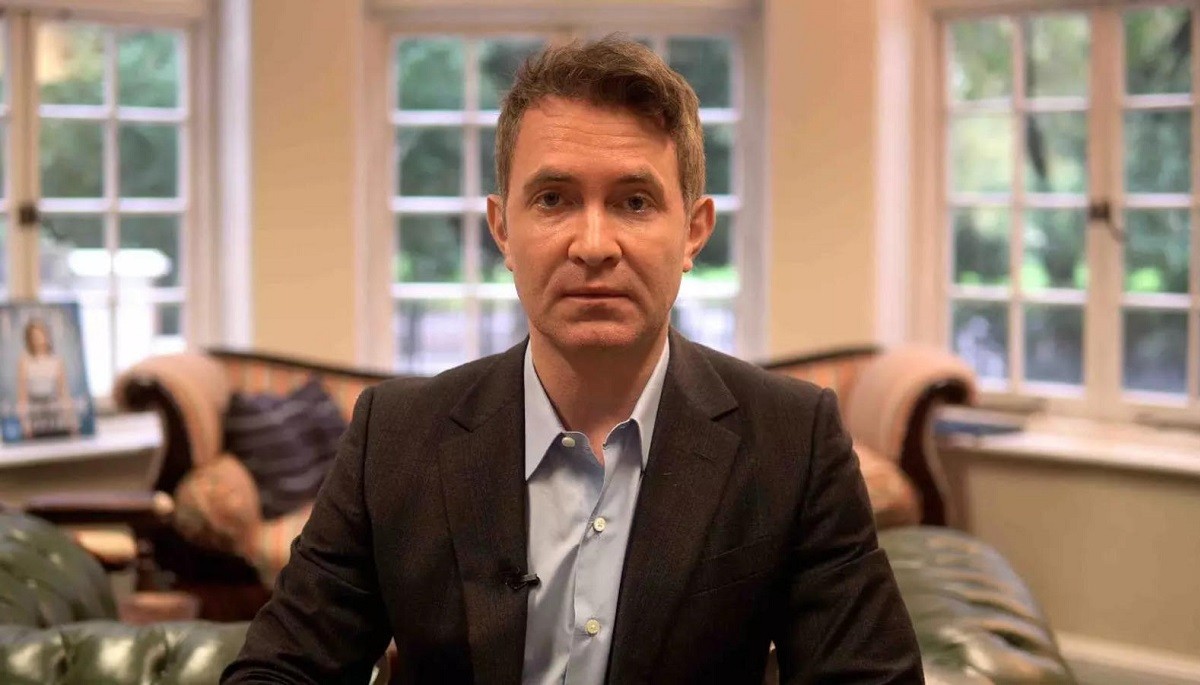Douglas Murray's Husband: Unveiling His Personal Life
Who is Douglas Murray, the controversial figure behind the pen and podium? He is a prominent British author, political commentator, and a man who navigates the complexities of public life while maintaining a steadfast commitment to his privacy.
Douglas Murray, a name that resonates with both admiration and controversy, has carved a significant niche in the world of political commentary and literature. Born in Hammersmith, London, on July 16, 1979, Murray has become a leading voice in conservative circles, known for his sharp wit, provocative opinions, and unwavering dedication to his principles. But beyond the headlines and the debates, lies a personal life that he guards with meticulous care. This article delves into the life and work of Douglas Murray, exploring his journey, his views, and the enigmatic aspects of his personal sphere.
| Attribute | Details |
|---|---|
| Full Name | Douglas Kear Murray |
| Date of Birth | July 16, 1979 |
| Place of Birth | Hammersmith, London, England |
| Occupation | Author, Political Commentator, Journalist |
| Political Affiliation | Conservative |
| Known For | Sharp political commentary, books like "The Strange Death of Europe" and "The Madness of Crowds" |
| Key Positions | Associate Editor of The Spectator, Founder of the Centre for Social Cohesion (later part of the Henry Jackson Society) |
| Personal Life | Openly gay, maintains a high degree of privacy, has not publicly disclosed a partner or relationship status |
| Notable Publications | "Neoconservatism: Why We Need It" (2005), "The Strange Death of Europe: Immigration, Identity, Islam" (2017), "The Madness of Crowds: Gender, Race and Identity" (2019) |
| Relationship Status | Not publicly disclosed |
| Website for Reference | Douglas Murray - Wikipedia |
From his early days, Murray demonstrated a precocious intellect and a penchant for intellectual debate. His educational background, including studies at Eton College and Oxford University, laid the foundation for his career in writing and commentary. It was during his time at Oxford that his political views began to solidify, and he started to develop the ideas that would later define his work. The Lambda Award for Gay Biography that his work received in 2001 marked an early recognition of his writing talent.
Murray's career took off with his writings on neoconservatism, a school of thought that profoundly influenced his subsequent work. He co-founded the Centre for Social Cohesion in 2007, which later became part of the Henry Jackson Society. Serving as an associate director from 2011 to 2018, Murray played a vital role in shaping the organization's research and advocacy efforts. His association with these organizations, coupled with his contributions to various publications like The Spectator and The Times, solidified his standing as a prominent voice in conservative circles.
One of the hallmarks of Murray's work is his willingness to confront challenging issues, often taking a contrarian stance. He has tackled subjects ranging from immigration and multiculturalism to gender identity and cancel culture. His book, "The Strange Death of Europe," became a bestseller and sparked considerable debate about the state of European identity and the challenges posed by immigration. Similarly, "The Madness of Crowds" explored the dynamics of social justice movements and the impact of identity politics on modern society.
Murray's views are often characterized as conservative, but he is not afraid to engage in robust debates with those who hold opposing views. He is a critic of Islam and multiculturalism, and he has been accused of Islamophobia. However, he defends his positions by arguing that he is simply pointing out what he believes to be the problems and the challenges that these groups face. Regardless of his public image, Murray has never shied away from defending his perspective on the world, whether speaking at events or in print.
One aspect of Murray's life that has consistently drawn interest is his personal life. As an openly gay man, Murray has often been asked about his relationship status. However, he maintains a high degree of privacy in this area. Information regarding his partner, husband or family life, has never been publicly disclosed, and Murray has made it clear that he values his privacy. This deliberate choice is a testament to his dedication to maintaining a boundary between his public persona and his private life.
The question of who Douglas Murray's husband is, therefore, becomes a delicate matter. While some media outlets have speculated about his romantic life, Murray himself has not confirmed or denied any relationships. His preference for privacy means that any definitive answer to this question remains elusive. Instead, he has chosen to focus on his work, his writings, and his public commentary. It has been reported that he has a significant someone in his life, a fact that is open, however details remain undisclosed.
The public fascination with Murray's personal life highlights the broader trend of wanting to know more about public figures. Celebrities and intellectuals alike frequently find their private lives under public scrutiny. Murray's response to this attention is a clear statement that personal privacy is a fundamental right, one that he is determined to protect. In a world where the line between public and private can often blur, he has chosen to uphold a commitment to protect his private life.
Despite this privacy, there are insights that can be gleaned from Murray's public statements and writings. His views on marriage, relationships, and societal issues provide clues about his values and perspectives. His writings often reflect a respect for traditional values, while simultaneously acknowledging the complexities of modern life. This balanced approach demonstrates his ability to navigate nuanced issues.
Moreover, it's important to note that Murray's professional achievements are considerable. His contributions to political discourse and his incisive analysis of critical issues have gained him a loyal following. His work has sparked important conversations, and his voice continues to resonate in the current political landscape. Even his critics acknowledge the impact that he has had on the discourse.
While the question of who Douglas Murray's husband is remains unanswered, it is imperative to respect his wishes for privacy. Instead of fixating on personal details, it's more important to focus on his work, the ideas, and the points that he raises in his work and public appearances. The fact that Murray has been recognized in the field of gay biographies shows that he is, by all accounts, a remarkable writer.
Ultimately, Douglas Murray's life is a testament to the complexities of modern life. He is a public intellectual who is unafraid to tackle difficult issues while simultaneously guarding his personal space. His legacy is as much about his work as it is about the choices he's made. For those who are curious about his personal life, it is important to respect the boundaries that he has set. For those who want to understand his ideas, his published works are the most reliable source.
In the context of his work and public presence, Douglas Murray remains an enigma. The author's decision to keep his personal life private, while sharing his thoughts and insights on current events, is understandable. While curiosity about his private life is natural, it is vital to respect his wish for privacy. Understanding Murray's work and its significance requires focusing on the ideas he has shared with the public. In this context, the "Douglas Murray husband" phrase invites further research and study, demonstrating the author's impact as a public intellectual and his influence on contemporary political discourse.



